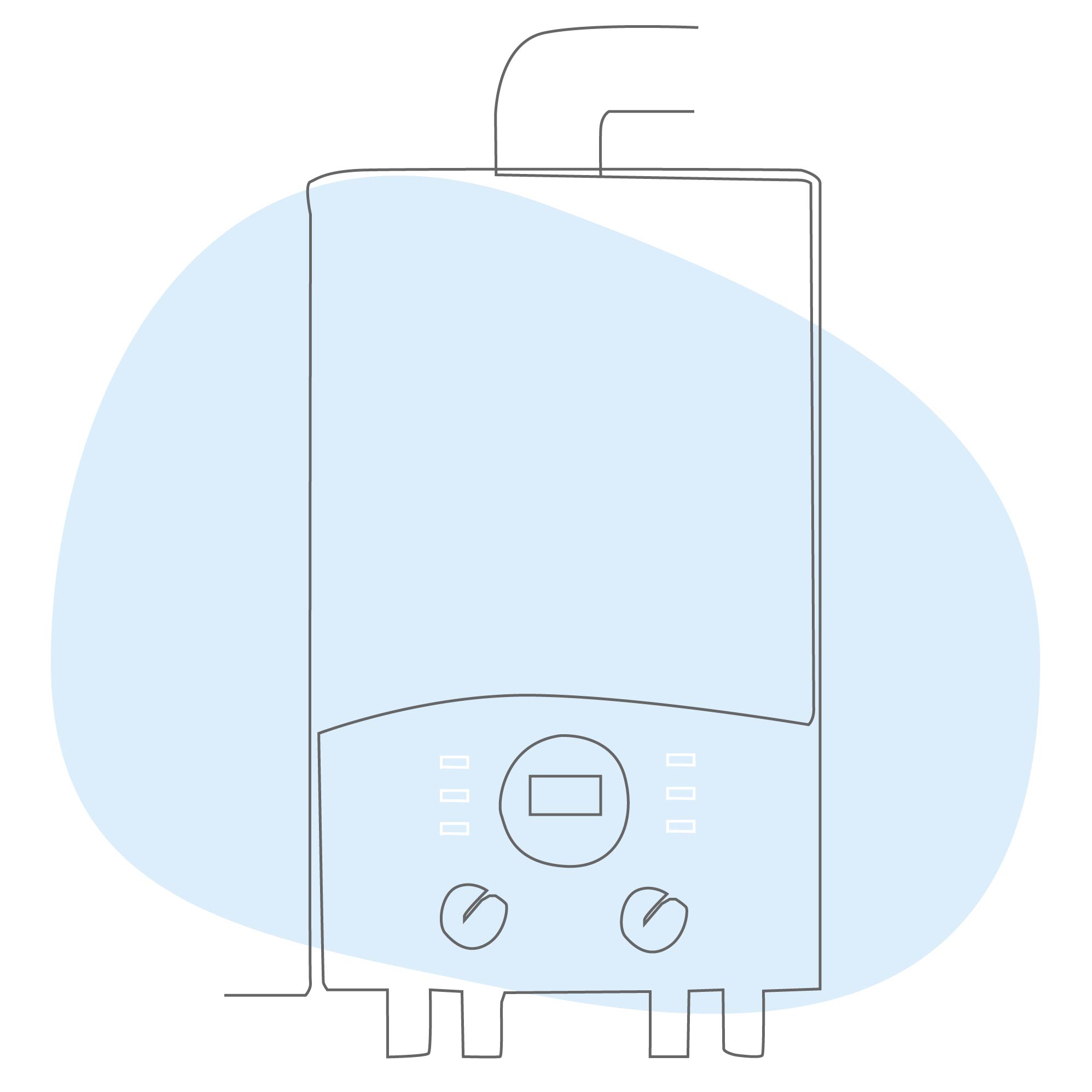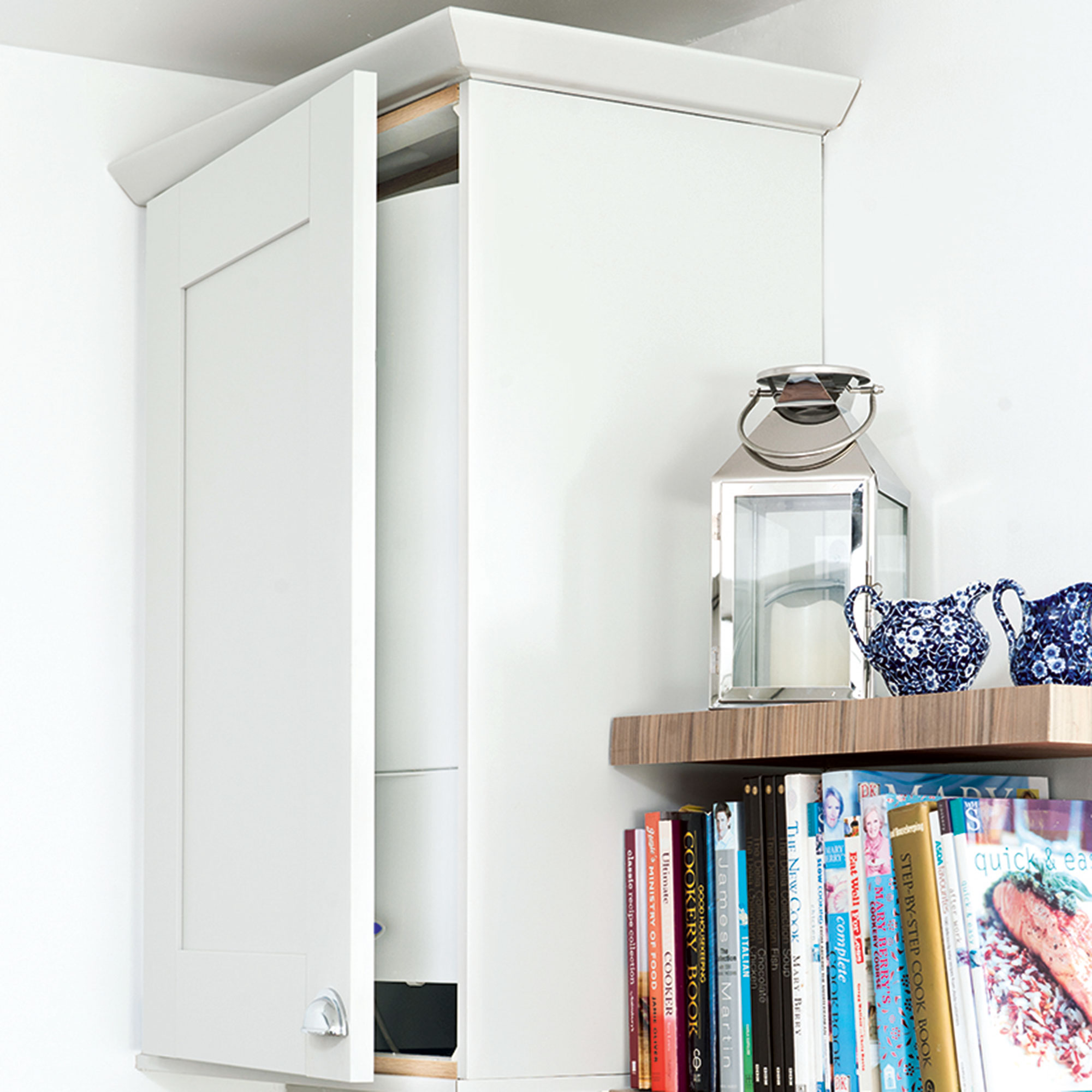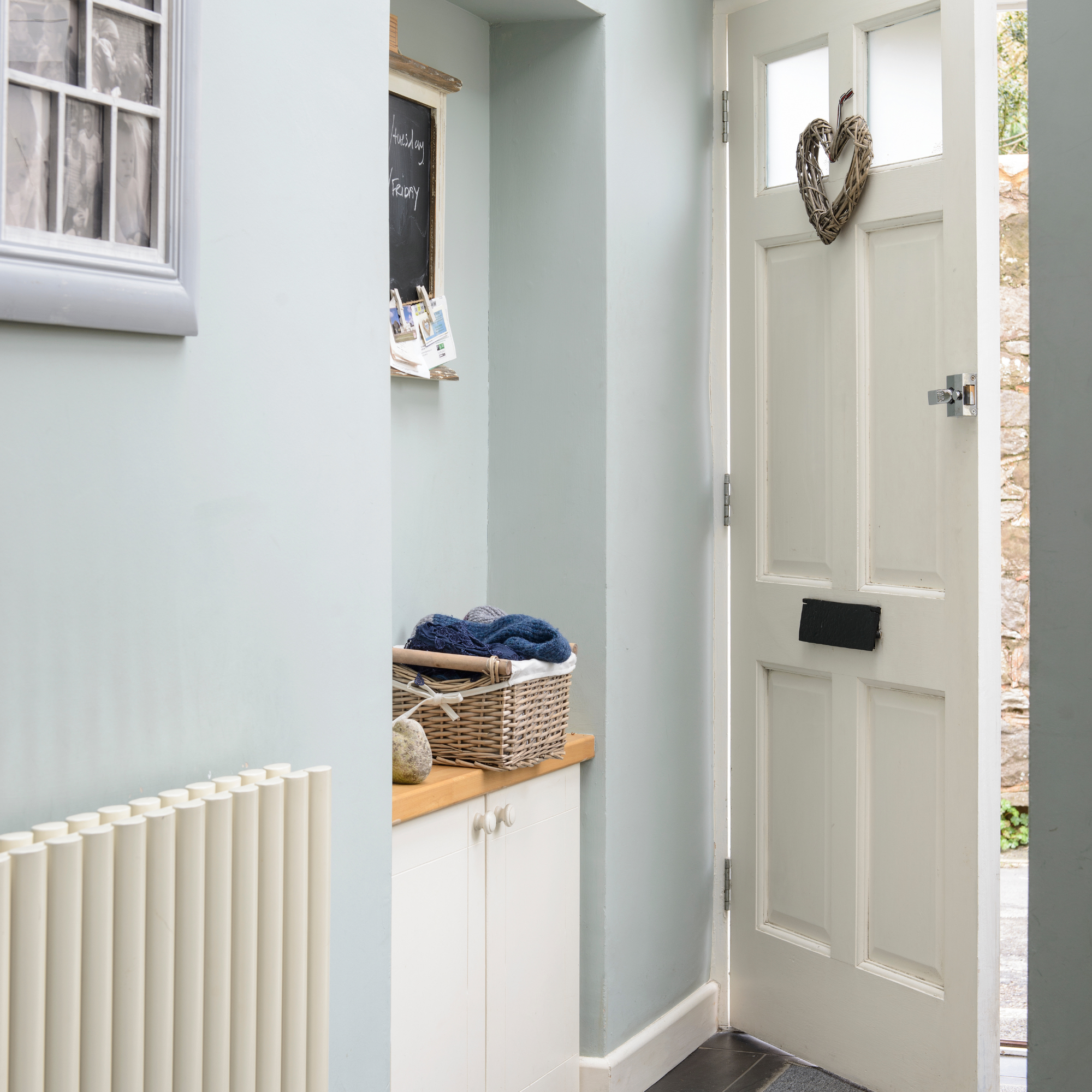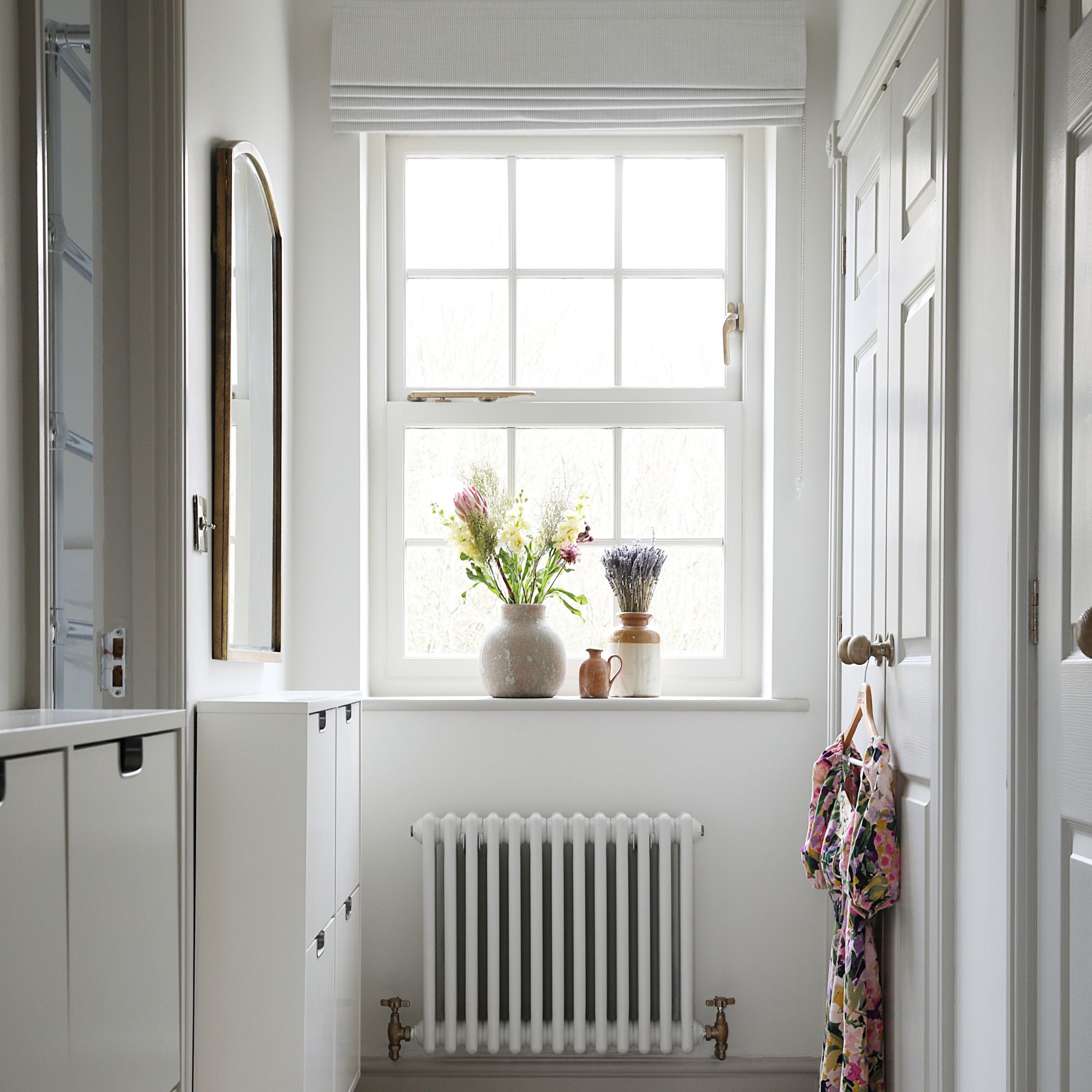
If you’re reading this and thinking, ‘What is boiler flow temperature?’ you’re not alone. But while most people don’t know what it is, most heating experts would agree that it’s one of the most critical pieces of information you’ll glean from your home’s boiler.
In a world where everything is getting increasingly expensive, we’re all on a mission to save energy at home. And although most people spend their days turning off radiators in rooms they’re not using and debating whether it’s cheaper to leave your heating on all day or not, heating experts are now urging homeowners and renters alike to check a little-known number on their boilers.
No, it’s not your boiler pressure. Instead, it’s your boiler flow temperature - something that’s perhaps even more crucial if you’re trying to cut down your energy bills and ensure your boiler is working as efficiently as possible. So, this is everything you need to know about boiler flow temperature and why it’s important.

What is boiler flow temperature?
Anyone with a boiler in their home needs to know about the boiler flow temperature - but, unfortunately, most people don’t. In fact, I had no idea what a boiler flow temperature was (or that it even existed) until I had an energy expert give my home a full MOT and outline everything that was making my energy bills more expensive than they should be.
As Michael Zohouri, founder of The Retrofitters, explains, ‘Boiler flow temperature is the temperature of water heated by the boiler before circulation through a home's heating system. It has a considerable impact on a home's energy efficiency and cost savings.’
So, in short, this is the temperature your boiler will heat your water to before it’s pushed through your radiator system and your hot taps or showers.
However, most people are at a disadvantage before they even begin, as many new boilers are set at around 80°C when they are first installed. This is much too high - especially if you have a combi boiler.

Although the idea is that a boiler flow temperature of 80°C will allow it to operate at an 80/60 level (i.e. the water will travel to your radiators at 80°C before returning to your boiler at 60°C, therefore allowing the extra 20°C to heat your home), the reality is that combi boilers work best at a lower temperature.
Nicholas Auckland at Trade Radiators echoes this, stating, ‘Lowering the flow temperature allows the boiler to reuse heat instead of losing it, which therefore makes the boilers more efficient and allows you to save on energy bills.’
This is because, when it reaches a lower temperature, a combi boiler can enter a ‘condensing mode’ - allowing it to recover the remaining heat from water that has already passed through your radiator system and then use it to maintain the boiler flow temperature. It can even recycle this captured heat the next time you want to heat your home.
What should my boiler flow temperature be?
We already know that a boiler flow temperature of 80°C is too high, but what temperature should a boiler flow temperature actually be? Well, about 20-30°C lower.
Michael advises, ‘For maximum efficiency, we typically recommend setting the flow temperature between 55°C and 60°C for heating. This range keeps the home comfortable without using unnecessary amounts of energy, particularly with modern condensing boilers.’
You can find your boiler flower temperature on your boiler’s temperature controls, and you can adjust it using the buttons or dials. However, if you’re not sure where yours is, it’s best to consult your specific boiler’s manual as they are all different.
There are instances where you shouldn’t do this, though, so be wary. As Nicholas explains, ‘If you have a boiler with a hot water tank, then you shouldn't touch your boiler's flow temperature. This is because turning it down too low can make drinking water unsafe.’
In this instance, you should keep your hot water tank temperature between 60°C and 65°C, as this will be hot enough to kill off any bacteria - particularly Legionella bacteria, which can cause Legionnaires disease.

Why should you reduce your boiler flow temperature?
From the above information, we know that reducing your boiler flow temperature is better for the overall efficiency of your boiler. But that’s not the only reason why experts urge homeowners to do it. There are also many other benefits, including:
1. It will lower your energy bills
Although there are many tricks to heat your home without turning the heating on, the reality is that most people need to turn their heating on at some point. And if you lower your boiler flow temperature, you can ultimately lower your energy usage in the process.
Michael says, ‘Lowering the flow temperature can lead to significant reductions in heating bills and energy usage. Many people crank up their flow temperature unnecessarily hot 'just in case' they need it. This means that their boiler has to work really hard to heat water to an unnecessarily high temperature.’
So, there’s no need to have it up so high. And as we all know, reduced energy usage also results in reduced energy bills depending on the current energy price cap.
In the best-case scenario, Ryan McNicholl, plumbing parts supplier at Spares Direct, says, ‘Lowering the flow temperature to 60ºC can save 9% of your gas usage however, if you are able, lowering it to 55ºC can save up to 12%. This change can save you up to £65 per year on your heating bills.’
2. It puts less strain on your boiler

Replacing a boiler can cost thousands, which is why it’s always worth keeping on top of your boiler’s service history and doing what you can to keep it in full working order. And one of the best ways to do this is to ensure it’s working to the best of its ability and not pushing itself too hard.
Reducing your boiler flow temperature is one of the best ways to do this, as it allows your boiler to work at its ideal capacity rather than straining to reach higher temperatures. Of course, it’s still worth knowing the signs of when it’s time to replace a boiler just in case yours is broken or too old.
3. It won’t affect your day-to-day life
Unless your home is leaking heat and urgently needs to be draught-proofed, reducing your boiler flow temperature slightly won’t affect your day-to-day life. In fact, most experts agree that you’ll barely notice the difference.
However, Ryan does issue a warning to those with vulnerable people in the house. He says, ‘It is important to note that if you or someone in your household is susceptible to the cold, you do not want to lower the temperature below 60ºC as this can affect how quickly the house will heat up.’
In general, though, a boiler flow temperature of around 50-60ºC will still keep your home toasty and your showers nice and hot. So, it’s well worth it.
Reducing your boiler flow temperature should help you save energy. But it's also worth investing in some smart heating, too. This starter kit includes a smart thermostat alongside the hub and receiver. Once professionally installed, it can regulate up to 6 zones of heating in your house.
FAQs
Is 60 degrees too hot for tap water?
60 degrees is about the right temperature for tap water, as this high temperature will ensure that any potential bacteria is killed before you drink it.
However, any higher than that you do run the risk of scalding yourself, so it’s always best to be cautious when determining the flow temperature of your hot water tank.
Why does my hot water go cold with a combi boiler?
If you have a combi boiler and your hot water has gone cold, it could be caused by one of the following:
- You have a blockage in the system.
- The thermostat has stopped working.
- You have low water pressure.
- The pipes have frozen.
- There is limescale in the pipes.
- The pilot light or ignition has stopped working.
If you suspect one of these issues, it’s best to call a plumber out as soon as possible to rectify the issue and we’d advise that you don’t try and fix it yourself.
Who knew the boiler flow temperature could make such a difference?







